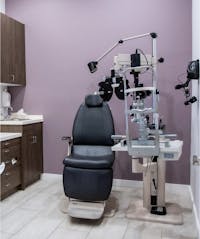
How Do I Prepare for My Cataract Surgery?
Your ophthalmologist will give you specific instructions to follow on the days leading up to, the day of, and the days after your surgery. There are certain medications that you will be asked to stop taking leading up to the date of your surgery.
Typically, eye-drops will be sent to your pharmacy a few days before the surgery so that you may begin using them. These drops are medication that help prevent infection and reduce swelling during and after the surgery.
The surgery is not performed in our office, it will be scheduled at an outpatient surgical center. On the day of the surgery, you will be asked to not eat any solid food at least 6 hours before undergoing our cataract surgery.

























